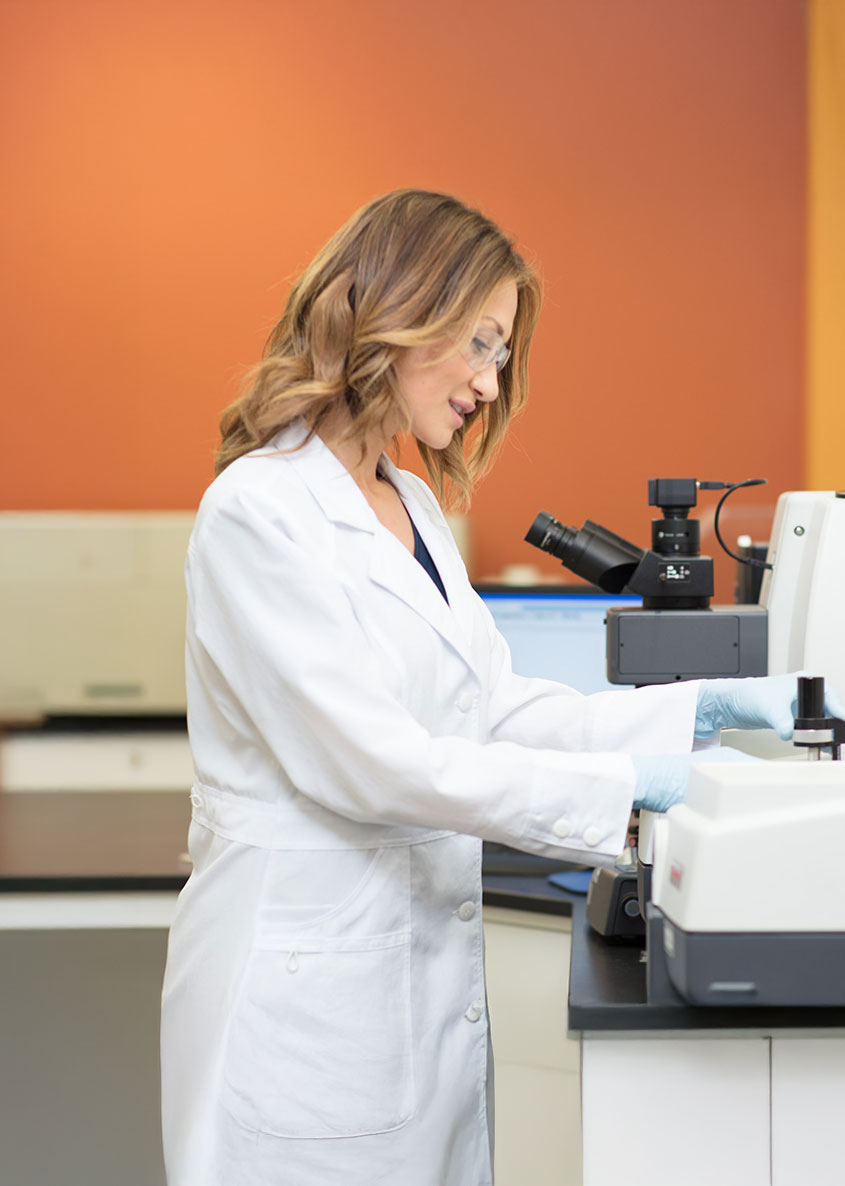Filter Validation
Services
Filter Performance &
Analysis
Filter Compatibility, Filterability, Chemical Analysis, Particle Retention Efficiency, & Extractables & Leachables Testing & Analysis
MTS provides customers with a wide range of analytical testing, product support, and application development services.
The MTS laboratory can perform contaminant analysis, conduct filter performance studies, and assist with process and filtration optimization. MTS performs filterability testing, extractables testing, and particulate effluent testing for Meissner-supplied products. Additional instrumental analyses performed by our MTS laboratories includes atomic absorption, GC-MS, UV-Vis spectrophotometry, laser particle counting, FTIR spectroscopy, scanning electron microscopy, and light microscopy.
Compatibility Screening
MTS performs critical analysis of interactions between filters and liquids under specified conditions in order to ensure the integrity of the filter and the integrity of the final product. Comprehensive analyses are used to assess the compatibility of a filter with a particular liquid.
Extractables Testing and Analysis
Testing extractables allows MTS to analyze filter performance with a particular product under worst-case conditions. To test extractables, MTS exposes a filter to a customer’s product or a model solvent per test parameters. Resulting extractables are identified and quantified.
Filterability
MTS commonly runs scale-up tests to determine what type of filtration system will work best for our customers’ process. Our scientists conduct tests with the customers’ product using disc filters and then extrapolate the data to determine the size, type, and number of filters necessary for the process. Filterability tests also allow the MTS staff to compare membranes side-by-side, allowing us to recommend the most optimal filter available.
Laser Particle Counting (Particle Retention Efficiency)
During a laser particle counting test, Meissner’s MTS staff challenge a filter with latex spheres to examine the filter’s particle removal efficiency. Upstream and downstream particle counts are recorded to determine the efficiency of the filter pass. MTS can use this information to measure particle size distributions, to determine filter efficiency, and to select filters for direct replacement into or conversion of an existing filtration process.
Qualitative and Quantitative Chemical Analysis
MTS can identify and quantify a wide variety of chemicals at trace concentrations with atomic absorption spectrometry (metals), UV-Vis spectrometry (metals and organics), GC-MS (organics), and fourier transform infrared (FTIR) spectrometry. Additional FTIR capabilities include surface, particulate (small sample) and thin film analyses, and chemometric identification and quantitation of components where feasible.

Let's talk.
Send a message to our
industry experts.